“Punting the Pundits” is an Open Thread. It is a selection of editorials and opinions from around the news medium and the internet blogs. The intent is to provide a forum for your reactions and opinions, not just to the opinions presented, but to what ever you find important.
Thanks to ek hornbeck, click on the link and you can access all the past “Punting the Pundits”
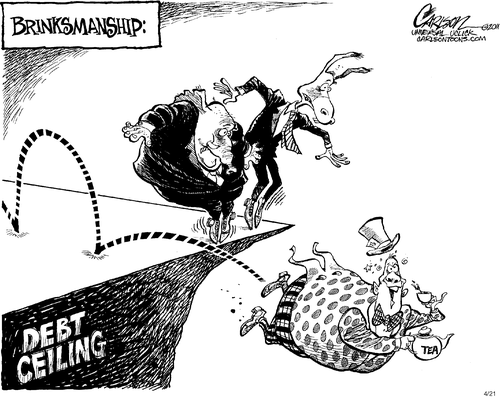 New York Times Editorial: How Not to Plan for the Future
New York Times Editorial: How Not to Plan for the Future
The agreement between Congress and the White House to virtually eliminate money for high-speed rail is harebrained. France, China, Brazil, even Russia, understand that high-speed rail is central to future development. Not Washington.
The budget package eliminated about $1 billion that President Obama had wanted to add to the current budget, and it rescinded $400 million of $2.4 billion that was already designated for high-speed rail this year.
Laura Flanders; US Lack of Investment Is Destabilizing the World
Here in the United States all we seem to hear about is deficits and debt. Yet even the countries that hold a lot of our debt are concerned for our lack of investment at home.
China’s pension fund head recently said that the US government needs to reduce not just its fiscal deficit but its trade gap, in order to maintain the dollar’s stability. US average levels need to be closer to those of developing nations and emerging markets, the manager of China’s Sovereign Wealth fund advised.
The decision by Standard & Poor’s to move U. S. government debt to a negative outlook is really a political intervention by a ratings agency into the country’s debt and deficit debate.
I truly doubt that any investor expects the United States government to default on its debt. The underlying assets of the United States – which is to say, the largest economy in the world – are rather formidable. And history says that we eventually get our act together on budget matters, even though the politics on the way there is usually ugly.
Amy Goodman: Power Shift vs. The Powers That Be
More than 10,000 people converged in Washington, D.C., this past week to discuss, organize, mobilize and protest around the issue of climate change. While tax day tea party gatherings of a few hundred scattered around the country made the news, this massive gathering, Power Shift 2011, was largely ignored by the media. They met the week before Earth Day, around the first anniversary of the BP oil rig explosion and the 25th anniversary of the Chernobyl disaster, while the Fukushima nuclear plant still spews radioactivity into the environment. Against such a calamitous backdrop, this renewed movement’s power and passion ensure that it won’t be ignored for long.
Rallying those attending to the work ahead, environmentalist, author and founder of 350.org Bill McKibben said: “This city is as polluted as Beijing. But instead of coal smoke, it’s polluted by money. Money warps our political life, it obscures our vision. … We know now what we need to do, and the first thing we need to do is build a movement. We will never have as much money as the oil companies, so we need a different currency to work in, we need bodies, we need creativity, we need spirit.”
Robert Sheer: The New Corporate World Order
The debate over Republicans’ insistence on continued tax breaks for the superrich and the corporations they run should come to a screeching halt with the report in Tuesday’s Wall Street Journal headlined “Big U.S. Firms Shift Hiring Abroad.” Those tax breaks over the past decade, leaving some corporations such as General Electric to pay no taxes at all, were supposed to lead to job creation, but just the opposite has occurred. As the WSJ put it, the multinational companies “cut their work forces in the U.S. by 2.9 million during the 2000s while increasing employment overseas by 2.4 million, new data from the U.S. Commerce Department show.”
Gail Collins: The New Anti-Abortion Math
One of my favorite stories about the Texas State Legislature involves the time Senator Wendy Davis was trying to ask a colleague, Troy Fraser, some questions about a pending bill. Fraser deflected by saying, “I have trouble hearing women’s voices.”
Really, she was standing right there on the floor. Holding a microphone.
These days in the budget-strapped, Tea-Party-besieged State Capitol, you can be grateful for any funny anecdote, no matter how badly it reflects on Texas politics in general. Like the time Gov. Rick Perry defended the state’s abstinence-only birth control program by saying that he knew abstinence worked “from my own personal life.”
Jim Hightower: Gubernatorial Goofiness in Maine
Gov. LePage’s rampage includes busting unions, rolling back child labor laws, gutting programs for the middle class and poor, and raising the retirement age for the state’s workers
Here’s a bit of political trivia: Three of the goofiest, most anti-worker governors in America are named Rick. What’re the odds of that?
They are Scott of Florida, Snyder of Michigan, and Perry of Texas. But all three Ricardos are in danger of being out-goofied by Paul LePage of Maine. He’s the right-wing extremist who slipped into the governor’s chair last fall after a three-way race in which he got a mere 38 percent of the vote. Rather than show a bit of humility, however, this minority governor has pumped himself up with high-octane hubris and gone on a tear against the state’s workaday majority.

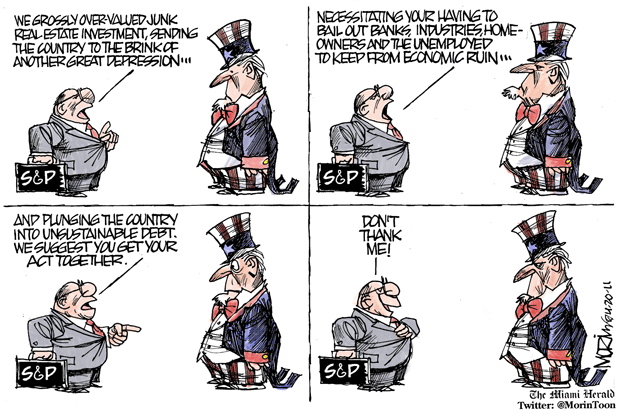
 Paul Greenberg:
Paul Greenberg:  Paul Krugman:
Paul Krugman:  Glenn Greenwald:
Glenn Greenwald: 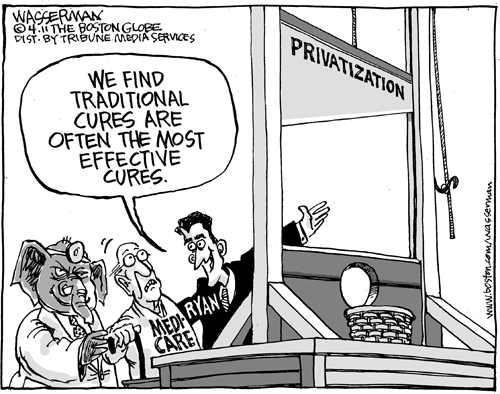 Paul Krugman:
Paul Krugman:  Heather “Digby” Parton:
Heather “Digby” Parton: 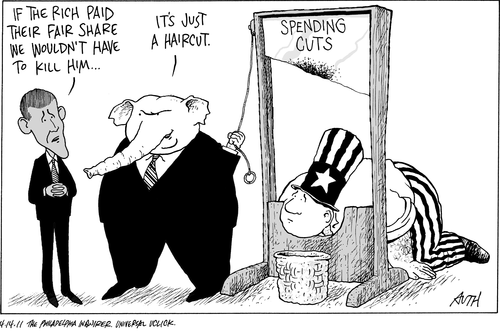 E.J. Dionne Jr.:
E.J. Dionne Jr.: 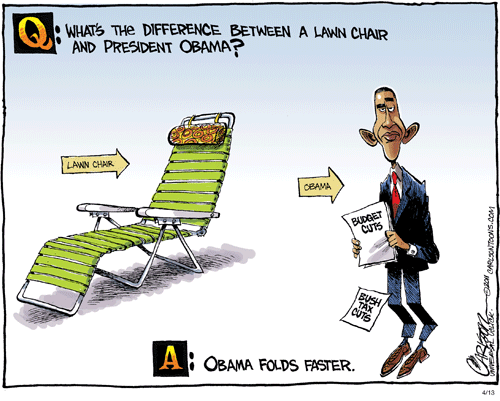 Katrina vanden Heuvel:
Katrina vanden Heuvel: 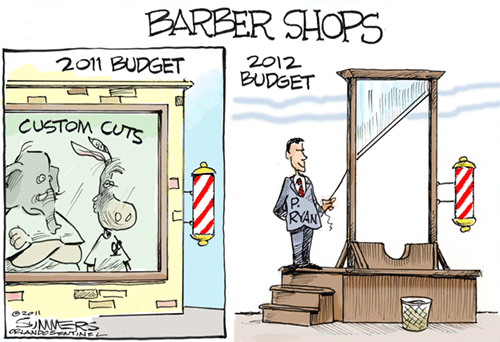
Recent Comments